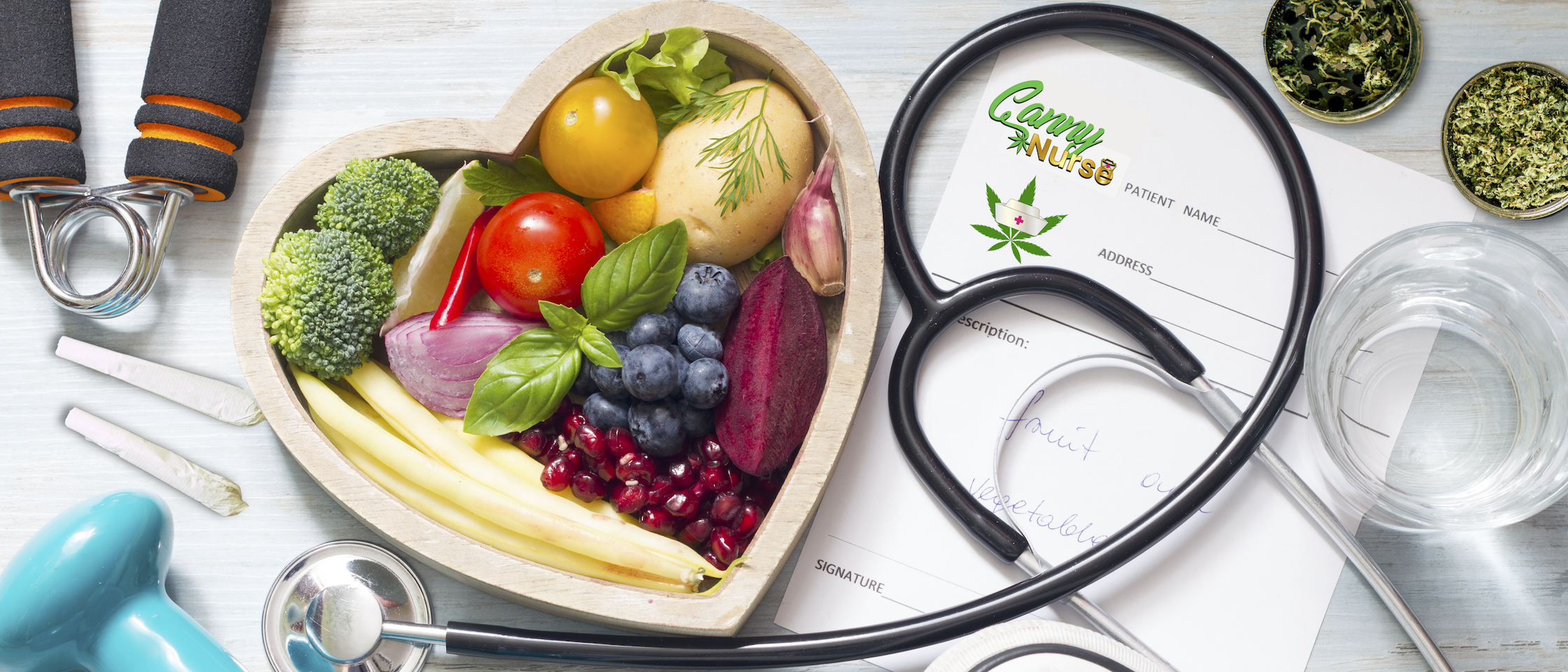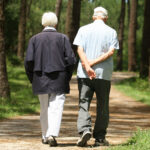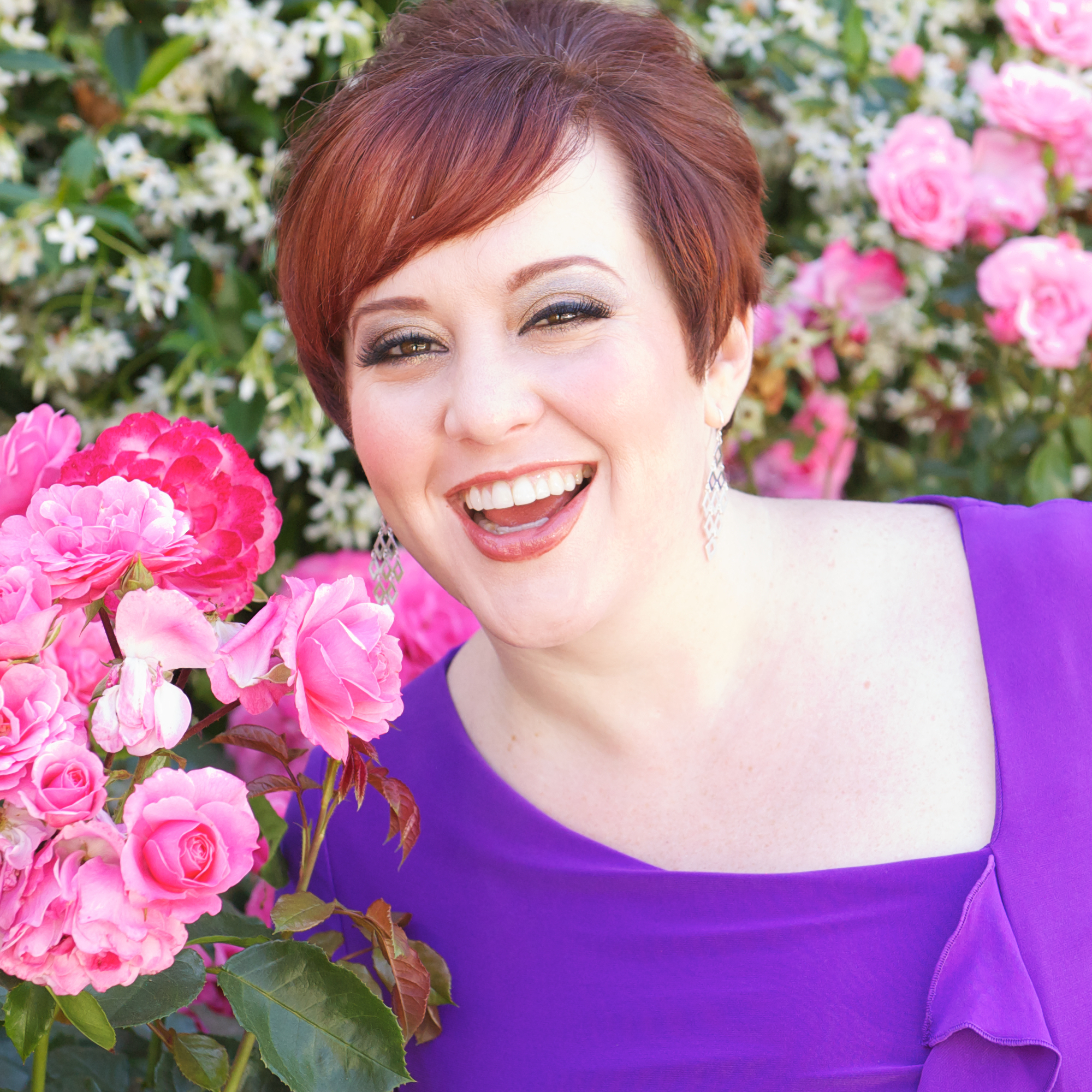
Lifestyle Medicine (part 2)
This is the second article in a 3-part series. The first article talked about what lifestyle medicine is and how our “modern lifestyle” is damaging our health. This article talks about ways our modern Western lifestyle is detrimental to health. The third article (coming soon) will look at simple, low-cost ways we can adjust our lifestyles to promote health.
Let your lifestyle heal you.
As I mentioned yesterday, this concept is a useful guide when thinking about lifestyle medicine. It is also deceptively simple and an idea (at least somewhat) borne out of privilege.
It’s a bit like the idea of the American Dream — this idea that if you work hard enough, no matter who you are or where you’re from, you can become successful in America. While this might be true for some people (people of privilege), opportunities for success are not equal for all people in America. Factors like your race, age, gender, weight, orientation, socioeconomic status, ability/disability, appearance, languages spoken, and education impact the opportunities available to you. In this scenario, someone who doesn’t achieve success (whatever that might mean) is essentially told it’s because they didn’t work hard enough. The responsibility and blame is set squarely on the shoulders of the individual, completely disregarding any systemic or cultural barriers that are limiting their opportunities.
Because of this, we need to be sensitive to the fact that not everyone can make changes that might seem easy to ourselves, personally. Stress, economic uncertainty, and sleep deprivation can all factor into what changes any individual is able to make. If your boss expects you to check email in your off hours, you may not be able to turn off your mobile phone. If you can’t buy fresh food in your local grocery store, how can you be expected to buy organic food (and what if you can’t afford it)?
As you read below, keep in mind that many of these problems are SYSTEMIC. We can certainly strive to make the best choices we can at any given moment, but hopefully the following points will help you understand what we are all up against thanks to our modern Western lifestyle.
Let’s look at the following examples of how our modern Western lifestyle is detrimental to our health.
Nutrition
 Our food is frequently grown far from where it’s consumed in chemical and pesticide-laden soil, transported in artificial environments (low-to-no-oxygen to slow or stop ripening), and packaged in plastic/ plasticized containers that leech chemicals into our food. Billions of advertising dollars are annually pumped into promoting unhealthy “fast” and pre-packaged “convenience” foods with minimal nutrition, unnaturally long storage lives, and cheap prices. These foods are engineered by “food scientists” whose specialty in not in the culinary arts, but in the way our brains’ reward centers work. Their job is to know what makes us crave certain substances and pump as many of those as possible into the food so we will buy it, crave it, buy more, and become addicted. Not only that, but the $192 billion diet industry (as of 2019) has a vested interest in keeping people on that dieting roller coaster, despite the fact that studies like this and this ask whether or not yo-yo dieting and weight cycling are actually causing the problems that losing weight is supposed to fix.
Our food is frequently grown far from where it’s consumed in chemical and pesticide-laden soil, transported in artificial environments (low-to-no-oxygen to slow or stop ripening), and packaged in plastic/ plasticized containers that leech chemicals into our food. Billions of advertising dollars are annually pumped into promoting unhealthy “fast” and pre-packaged “convenience” foods with minimal nutrition, unnaturally long storage lives, and cheap prices. These foods are engineered by “food scientists” whose specialty in not in the culinary arts, but in the way our brains’ reward centers work. Their job is to know what makes us crave certain substances and pump as many of those as possible into the food so we will buy it, crave it, buy more, and become addicted. Not only that, but the $192 billion diet industry (as of 2019) has a vested interest in keeping people on that dieting roller coaster, despite the fact that studies like this and this ask whether or not yo-yo dieting and weight cycling are actually causing the problems that losing weight is supposed to fix.
Sleep
 In our Type-A, “more is always better” achievement-oriented, growth-focused culture, we are encouraged to optimise our bodies and pursue goals that are often beyond our human capability. One great example of this is the concept of “multitasking.” Originally a term applied to computers, people began to think that humans could work that way too. This is a massive cultural delusion. Neuroscientists have long known that our brains can ONLY do one (conscious) task at a time, so what people refer to as multitasking is, in actuality, quickly switching from one task to another. This is inefficient, makes it harder for us to focus, and diminishes our productivity, BUT we’ve bought into it (as a culture), so people are praised for their “ability to multitask.” What does this have to do with sleep, you may ask? Well… when we’re inefficient and trying to do more than we are physiologically capable of, something has to give. Often, that thing is sleep. We sleep fewer hours than our ancestors did and we’ve lost the connection of daylight to our circadian rhythms that helps regulate our bodies. The vast majority of adults nowadays are sleep-deprived, and kids are losing precious sleep hours too, which interferes with brain development. Sleep is not seen as a priority, but insufficient sleep impacts every aspect of our lives.
In our Type-A, “more is always better” achievement-oriented, growth-focused culture, we are encouraged to optimise our bodies and pursue goals that are often beyond our human capability. One great example of this is the concept of “multitasking.” Originally a term applied to computers, people began to think that humans could work that way too. This is a massive cultural delusion. Neuroscientists have long known that our brains can ONLY do one (conscious) task at a time, so what people refer to as multitasking is, in actuality, quickly switching from one task to another. This is inefficient, makes it harder for us to focus, and diminishes our productivity, BUT we’ve bought into it (as a culture), so people are praised for their “ability to multitask.” What does this have to do with sleep, you may ask? Well… when we’re inefficient and trying to do more than we are physiologically capable of, something has to give. Often, that thing is sleep. We sleep fewer hours than our ancestors did and we’ve lost the connection of daylight to our circadian rhythms that helps regulate our bodies. The vast majority of adults nowadays are sleep-deprived, and kids are losing precious sleep hours too, which interferes with brain development. Sleep is not seen as a priority, but insufficient sleep impacts every aspect of our lives.
Exercise
 I’ve already mentioned our Type-A, “more is always better” achievement-oriented, growth-focused culture, and it’s applied to exercise as well. Extreme examples are easily found on either side of this problem, with some people exercising obsessively and beyond what is healthy (classed in eating disorders) while many others living “modern lives” are more sedentary than in any other period of human history. This problem is in some ways perpetrated by airbrushed, filtered, and otherwise altered examples of “ideal bodies” in the media. Thinness is praised over health (research shows these are NOT the same thing), with the result that many people are taught to pursue impossible and unrealistic standards, rather than a focus on functional fitness and strength goals. (Can we even imagine a world where the ideal body was one that could achieve functional physical goals rather than to look a certain way?)
I’ve already mentioned our Type-A, “more is always better” achievement-oriented, growth-focused culture, and it’s applied to exercise as well. Extreme examples are easily found on either side of this problem, with some people exercising obsessively and beyond what is healthy (classed in eating disorders) while many others living “modern lives” are more sedentary than in any other period of human history. This problem is in some ways perpetrated by airbrushed, filtered, and otherwise altered examples of “ideal bodies” in the media. Thinness is praised over health (research shows these are NOT the same thing), with the result that many people are taught to pursue impossible and unrealistic standards, rather than a focus on functional fitness and strength goals. (Can we even imagine a world where the ideal body was one that could achieve functional physical goals rather than to look a certain way?)
Substance Use
 Caffeine, alcohol, and nicotine are commonly used substances. While there is some debate on the benefits of caffeine and whether it is beneficial (some evidence says yes, others say it’s a band-aid fix for not getting enough sleep), we know that drinking alcohol and consuming nicotine are not health-promoting. Cannabis, on the other hand, has a wide variety of therapeutic uses and has been used by humans since before recorded history. Early written history confirms the medicinal use of cannabis from many different cultures, ranging from East to West, North to South. These are not the only substances we consume — while it might not immediately come to mind, the $143 billion supplements market (as of 2020) is built on principles of economic growth — not our health. The $1.27 trillion pharmaceutical industry (as of 2020) also profits from drugs that are easily abused. “Street drugs” of any type (even cannabis) are certainly dangerous, since they’re unregulated and can easily be doctored with dangerous additives.
Caffeine, alcohol, and nicotine are commonly used substances. While there is some debate on the benefits of caffeine and whether it is beneficial (some evidence says yes, others say it’s a band-aid fix for not getting enough sleep), we know that drinking alcohol and consuming nicotine are not health-promoting. Cannabis, on the other hand, has a wide variety of therapeutic uses and has been used by humans since before recorded history. Early written history confirms the medicinal use of cannabis from many different cultures, ranging from East to West, North to South. These are not the only substances we consume — while it might not immediately come to mind, the $143 billion supplements market (as of 2020) is built on principles of economic growth — not our health. The $1.27 trillion pharmaceutical industry (as of 2020) also profits from drugs that are easily abused. “Street drugs” of any type (even cannabis) are certainly dangerous, since they’re unregulated and can easily be doctored with dangerous additives.
Stress Management
 I’ll say it again, our Type-A, “more is always better” achievement-oriented, growth-focused culture is incredibly stressful. Add that to the information overload we get from 24/7 news broadcasts, social media, and traditional media, and our brains and bodies are effectively under siege all the time. Kt’s not like in the “old days” when TV would shut off during normal “sleeping hours.” Nope! The physiologic stress of this constant barrage of information coupled with longer working hours, diminished sleep, artificial lighting interfering with our brain’s melatonin production and circadian rhythms, increased expectations to be “on call” and answer emails outside working hours, and easy access to stimulants like caffeine and sugar, makes it nearly impossible to unplug and unwind. Then, add in economic uncertainty. A global pandemic. The sudden fear of doing basic things like going grocery shopping. I believe we are in a collective trauma state after spending the past two years “battling” a global pandemic. Then… reduce funding for mental health issues and creative pursuits (which are often stress-relieving), increase the costs of getting an education, cut jobs, and decrease people’s abilities to physically gather with their loved ones. Stress management is now a privilege for people who are not worried about their family’s financial future.
I’ll say it again, our Type-A, “more is always better” achievement-oriented, growth-focused culture is incredibly stressful. Add that to the information overload we get from 24/7 news broadcasts, social media, and traditional media, and our brains and bodies are effectively under siege all the time. Kt’s not like in the “old days” when TV would shut off during normal “sleeping hours.” Nope! The physiologic stress of this constant barrage of information coupled with longer working hours, diminished sleep, artificial lighting interfering with our brain’s melatonin production and circadian rhythms, increased expectations to be “on call” and answer emails outside working hours, and easy access to stimulants like caffeine and sugar, makes it nearly impossible to unplug and unwind. Then, add in economic uncertainty. A global pandemic. The sudden fear of doing basic things like going grocery shopping. I believe we are in a collective trauma state after spending the past two years “battling” a global pandemic. Then… reduce funding for mental health issues and creative pursuits (which are often stress-relieving), increase the costs of getting an education, cut jobs, and decrease people’s abilities to physically gather with their loved ones. Stress management is now a privilege for people who are not worried about their family’s financial future.
Social Connection
 Okay, I jumped the gun a little bit on this one, but what have we (collectively) missed most since the pandemic started? Gathering in person with our friends and family. Hugging each other. Being present with our people. Social media is built to keep us “engaged” — meaning on their platform. In Johann Hari’s new book, Stolen Focus, he talks about the thousands of software engineers who are working tirelessly to keep you from putting your phone down and closing out of social media. Does Facebook make money when you see your friends in person? Nope. Sochi media is NOT the same as meaningful social connections. While technology can certainly facilitate connection (all those family celebrations over video chat these past few years confirm this), it is a poor substitute for meaningful human connection and touch.
Okay, I jumped the gun a little bit on this one, but what have we (collectively) missed most since the pandemic started? Gathering in person with our friends and family. Hugging each other. Being present with our people. Social media is built to keep us “engaged” — meaning on their platform. In Johann Hari’s new book, Stolen Focus, he talks about the thousands of software engineers who are working tirelessly to keep you from putting your phone down and closing out of social media. Does Facebook make money when you see your friends in person? Nope. Sochi media is NOT the same as meaningful social connections. While technology can certainly facilitate connection (all those family celebrations over video chat these past few years confirm this), it is a poor substitute for meaningful human connection and touch.
Spirituality
 Some might say the decline of organized religion is decreasing spirituality, but I think it could also be increasing it. When we find meaning and purpose in a deeply personal way, that can be as powerful, if not more powerful than something that is externally imposed upon us. That said, our society does not value philosophy, the search for meaning and purpose, and reflective time as much as it values its capitalist achievements. Without meaning, purpose and hope though, what do we do? We fill our lives with junk values, junk food, and mindless media. These endless distractions leave too many people feeling hopeless, unsettled, and “vaguely frustrated” (to use a term Hari wrote that especially resonated with me). Without spirituality, we may feel that something is missing — if nothing has an purpose and we can’t find meaning, we eventually fall into an apathetic state of unease. Then, as this hole in our life grows, we fill it with whatever we think could make it better: a new car, a bowl of ice cream, a 2-hour workout, a piece of arm candy. And while the search for meaning and purpose is often a private one, we don’t value the time it takes to reflect on our lives and give them meaning. If we did, mental health days might be considered a valid reason to take time off work.
Some might say the decline of organized religion is decreasing spirituality, but I think it could also be increasing it. When we find meaning and purpose in a deeply personal way, that can be as powerful, if not more powerful than something that is externally imposed upon us. That said, our society does not value philosophy, the search for meaning and purpose, and reflective time as much as it values its capitalist achievements. Without meaning, purpose and hope though, what do we do? We fill our lives with junk values, junk food, and mindless media. These endless distractions leave too many people feeling hopeless, unsettled, and “vaguely frustrated” (to use a term Hari wrote that especially resonated with me). Without spirituality, we may feel that something is missing — if nothing has an purpose and we can’t find meaning, we eventually fall into an apathetic state of unease. Then, as this hole in our life grows, we fill it with whatever we think could make it better: a new car, a bowl of ice cream, a 2-hour workout, a piece of arm candy. And while the search for meaning and purpose is often a private one, we don’t value the time it takes to reflect on our lives and give them meaning. If we did, mental health days might be considered a valid reason to take time off work.
Environment
 Since the industrial revolution, we humans have polluted the environment more than in any previous chapter of human history. Our air, water, and land are all polluted, and this is damaging our health in numerous ways. While it’s not as simple to fix as going out and planting trees, living in “concrete jungles” is contrary to nature. We are nature — we are not some separate species that landed on this planet and is made up of something different, separate, and special. Nope. Ashes to ashes, dust to dust… our bodies are made up of the same substances we find in the earth. Eating polluted foods, drinking polluted water, and breathing polluted air all impact our health for the worse. This isn’t typically addressed in lifestyle medicine, but it’s an important thing to pay attention to. Unfortunately, social problems require social solutions. Our hope here at CannyNurse™ is that through education we can help people understand WHY we need to pursue social change. America is a democracy, which means ‘we the people’ have the power to make changes through advocacy, nonviolent protests, and by participating in our democracy. We can’t wait for big, profit-driven companies to make change. We have to demand it.
Since the industrial revolution, we humans have polluted the environment more than in any previous chapter of human history. Our air, water, and land are all polluted, and this is damaging our health in numerous ways. While it’s not as simple to fix as going out and planting trees, living in “concrete jungles” is contrary to nature. We are nature — we are not some separate species that landed on this planet and is made up of something different, separate, and special. Nope. Ashes to ashes, dust to dust… our bodies are made up of the same substances we find in the earth. Eating polluted foods, drinking polluted water, and breathing polluted air all impact our health for the worse. This isn’t typically addressed in lifestyle medicine, but it’s an important thing to pay attention to. Unfortunately, social problems require social solutions. Our hope here at CannyNurse™ is that through education we can help people understand WHY we need to pursue social change. America is a democracy, which means ‘we the people’ have the power to make changes through advocacy, nonviolent protests, and by participating in our democracy. We can’t wait for big, profit-driven companies to make change. We have to demand it.
This list is depressing, I know, but we can make change. We can demand change from our leaders, and when they won’t do what’s in the best interest of the people, we can vote them out. Some of us can vote with our dollars by supporting farmers markets and local, organic food suppliers. We can help those who are less privileged by leading community efforts to reduce food deserts and increase health-promoting opportunities. There is hope.
But when these large social issues are overwhelming, it helps to look at things we can do ourselves, in our own daily lives, to help us feel better. The next article in this series will look at that very topic.
References:
Allied Market Research. (n.d.). Weight loss and weight management diet market size, share & trends. Retrieved January 18, 2022, from https://www.alliedmarketresearch.com/weight-loss-management-diet-market
American College of Lifestyle Medicine. (n.d.). LifestyleMedicine.org. Lifestylemedicine.Org. Retrieved January 18, 2022, from https://lifestylemedicine.org
Clark, C. S. (2021). Cannabis: A handbook for nurses. LWW.
Dulloo, A. G., & Montani, J. P. (2015). Pathways from dieting to weight regain, to obesity and to the metabolic syndrome: an overview. Obesity reviews : an official journal of the International Association for the Study of Obesity, 16 Suppl 1, 1–6. https://doi.org/10.1111/obr.12250
Grand View Research. (2021, February). Dietary supplements market size & trends report, 2021–2028. Retrieved January 18, 2022, from https://www.grandviewresearch.com/industry-analysis/dietary-supplements-market
Hari, J. (2022). Stolen focus: Why you can’t pay Attention–And how to think deeply again (Kindle ed.). Crown Publishing Group (NY).
Mikulic, M. (2021, September 10). Global pharmaceutical industry – statistics & facts. Statista. Retrieved January 18, 2022, from https://www.statista.com/topics/1764/global-pharmaceutical-industry/
Rhee E. J. (2017). Weight Cycling and Its Cardiometabolic Impact. Journal of obesity & metabolic syndrome, 26(4), 237–242. https://doi.org/10.7570/jomes.2017.26.4.237

Author, activist, international speaker, multi-preneur, mentor, wife, and mom, Ariana Ayu is a Transformational Mystic and a Catalyst for Conscious Change.
She is the creator and lead educator for the CannyNurse™ Certificate Program, a 50-hour CEU program for nurses from LPNs through doctoral degrees, and the first comprehensive cannabis nurse training program designed for working nurses. An ordained priestess, holistic healer, and lifelong student of ancient/ modern wisdom, Ariana’s nursing background includes pediatrics, labor & delivery, nurse education, and Holistic Health/ Integrative Nurse Coaching.
She earned her MSc in Advancing Nursing Practice from the University of Edinburgh in Scotland (UK), and her Cannabis Nursing Certification from Pacific College of Health and Science.
She is passionate about racial justice, social equity, environmental preservation and conservation, and empowered health, wellness, and joy for all. Her practice is governed by the ethical principles of integrity, nonjudgment, empowerment, and respect for her clients’ autonomy.